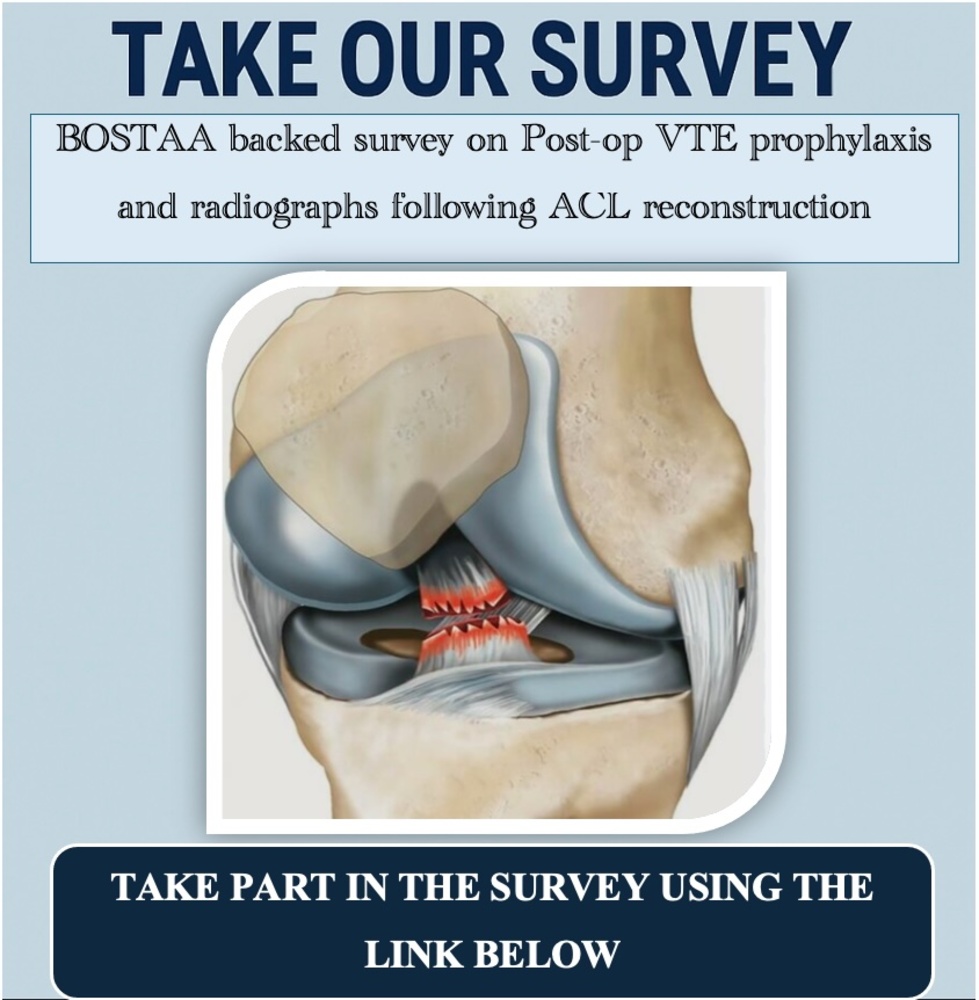
Consultants in ACL-R - We are seeking consensus on 2 hot topics in ACL post-op protocols:
With BOSTAA's support, this survey aims to guide national practice.
For further information please contact: rakan.kabariti1@nhs.net
.
Consultants in ACL-R - We are seeking consensus on 2 hot topics in ACL post-op protocols:
With BOSTAA's support, this survey aims to guide national practice.
For further information please contact: rakan.kabariti1@nhs.net
.